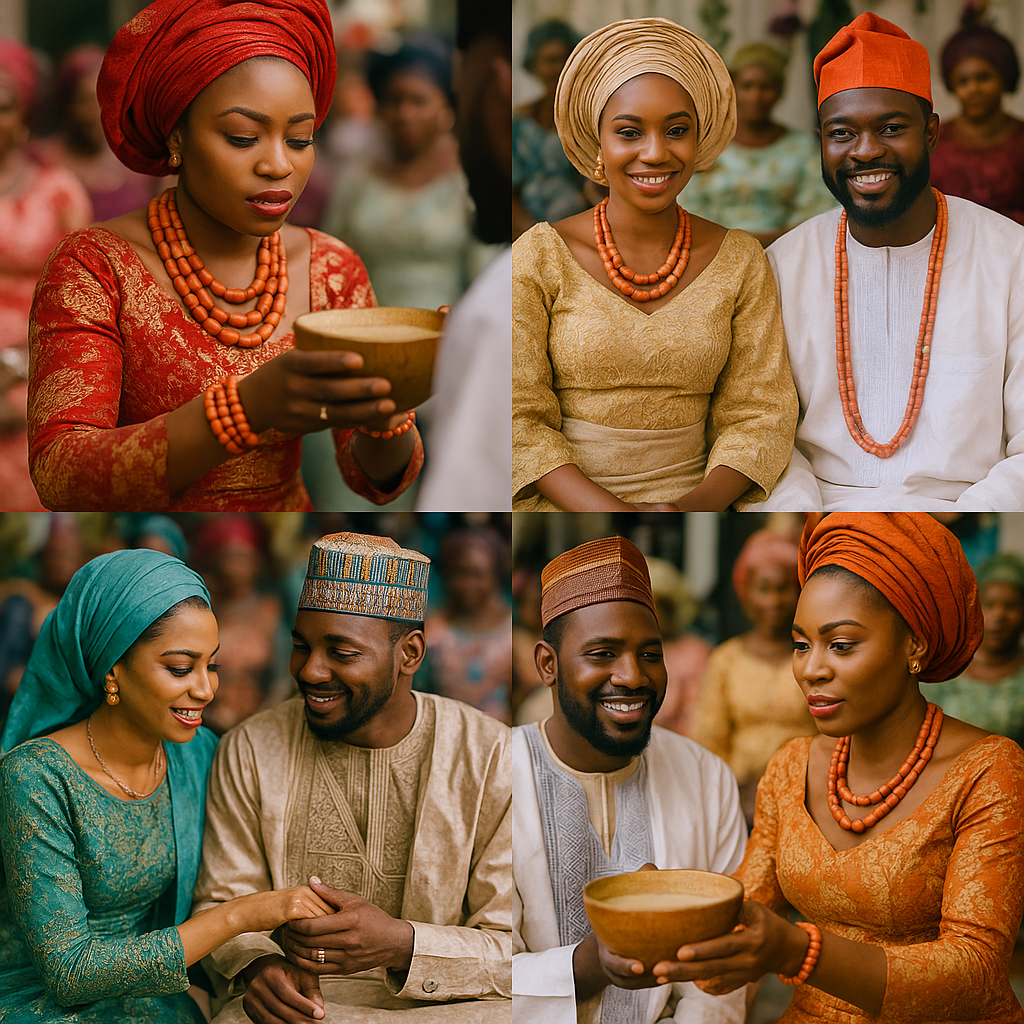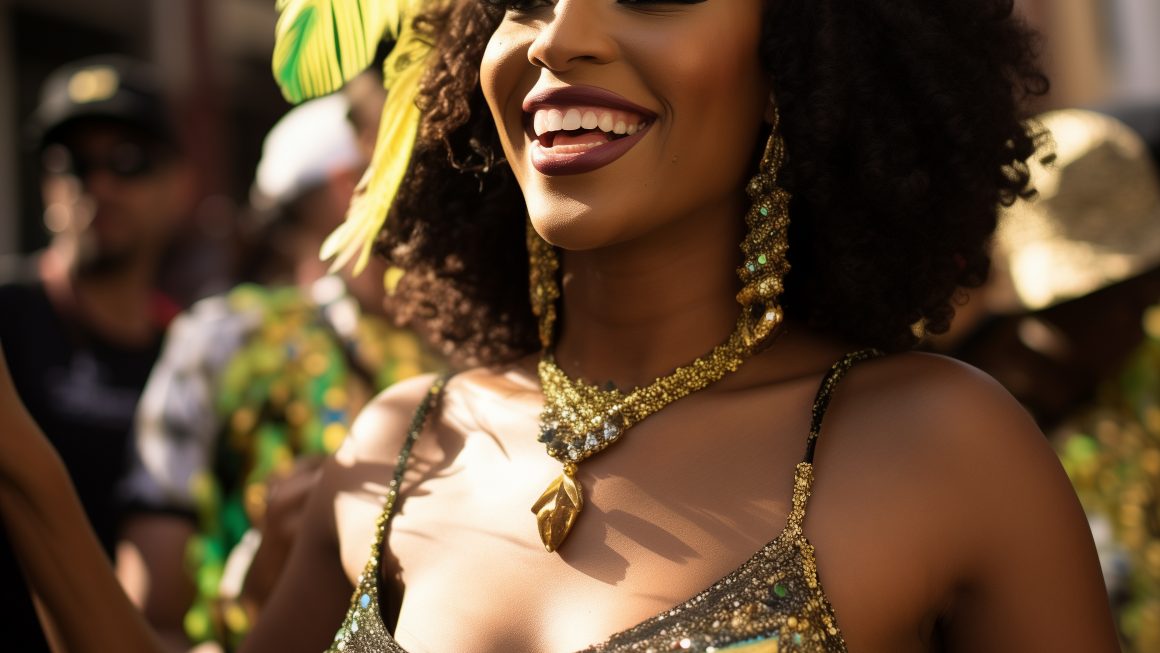Let’s face it, no one throws a traditional wedding like Nigerians do. The colors, the music, the laughter, the endless dancing, and of course, the gele and agbada, traditional Nigerian weddings are more than ceremonies. They are grand cultural festivals that celebrate love, community, ancestry, and tradition.
In a world that’s evolving fast, you’d think couples would opt for simpler, modern weddings. But traditional Nigerian weddings are not only holding their ground, they are thriving, blending the old with the new in ways that keep generations connected and guests in awe.
1. A Deep Sense of Cultural Pride
Each traditional Nigerian wedding is a reflection of one’s ethnic heritage, Yoruba, Igbo, Hausa, Efik, Tiv, Ibibio, and more. Every tribe has its own customs, rituals, attire, and dance, and they are showcased with pride.
For example:
- In Igbo weddings, the bride is formally introduced to the groom’s family during the iku aka (knocking on the door) ceremony, and later, she performs the wine-carrying ritual, searching for her husband among guests.
- In Yoruba weddings, families exchange letters of proposal and acceptance. Then there’s the dramatic prostration of the groom and his groomsmen, asking for the bride’s hand with humility and flair.
- Hausa weddings involve several stages, including the kayan lefe (bride’s gift items) and fatiha (the Islamic marriage contract), all done with elegance and religious reverence.
Traditional weddings are where culture shines the brightest. They’re not just for the couple, they’re for the entire community.
2. Fashion Like You’ve Never Seen Before
Traditional weddings are where Nigerian fashion hits its highest note.
- Yoruba couples don vibrant aso-oke fabrics, gele, and fila hats.
- Igbo brides stun in coral beads, richly embroidered blouses, and flowing wrappers.
- Hausa-Fulani brides glow in elaborate henna, embroidered veils, and colorful atamfa attire.
Guests are also expected to wear aso-ebi , coordinated fabrics chosen by the bride’s family. This unity in dressing creates a beautiful sea of color at every event, and yes, the competition for “best dressed” is always silently fierce.
Many fashion designers in Nigeria owe their fame to the creativity that comes from styling traditional weddings. It’s high fashion meets heritage.
3. Food That Feeds the Soul
One thing you will never forget at a traditional Nigerian wedding is the food. There’s a feast for every tribe:
- Igbo: Nkwobi, pepper soup, jollof rice, oha soup, and fufu.
- Yoruba: Amala with ewedu and gbegiri, jollof rice, moin-moin, and goat meat.
- Hausa: Tuwo shinkafa, masa, suya, and kunu.
Drinks flow freely, from palm wine to Chapman cocktails. Every bite is a reminder that celebration in Nigeria is about abundance, hospitality, and flavor.
The aunties will always make sure you’ve eaten before you leave. That’s tradition.
4. Music, Dance, and Joy Unlimited
Music at traditional weddings is a non-stop vibe. The talking drum, Igbo ogene, Hausa kalangu, and modern DJ mixes all come together to get people dancing.
- In Yoruba weddings, Fuji or Apala music may be performed live.
- Igbo weddings often have Ikwokrikwo dance or modern highlife.
- Hausa weddings include Shantu drumming and joyful praise singing.
There’s no such thing as “sit still” at a Nigerian wedding. Even grandma is on her feet, busting moves!
Ever been to a wedding where the bride’s aunties sprayed naira notes mid-dance while hypemen shouted praises? That’s the real Nigerian flavor.
5. The Blessings and Ancestral Connection
Traditional weddings aren’t just about love between two people. They’re about two families becoming one. The blessings from elders, heartfelt prayers, libation rituals, and symbolic gifts are taken seriously.
Elders speak wisdom into the marriage. Items like kola nuts, alligator pepper, yam tubers, and wine are exchanged to signify fertility, hospitality, and prosperity.
In many traditions, a couple cannot truly be considered married until these ancestral rites are performed.
A courthouse certificate is nice — but in Nigeria, it’s mama’s prayers and papa’s blessings that seal the deal.
6. Instagram-Worthy Yet Rooted in Legacy
Modern couples now infuse their weddings with stylish decor, cinematic videography, drone coverage, and live Instagram stories. But they do all this without compromising the core cultural rituals.
Some even have two days of events ,one for the traditional wedding, and another for the white wedding.
This shows how Nigerian weddings can evolve without losing their soul.
Culture isn’t static — it’s a living rhythm that adapts and flows with each generation.
Why We’ll Always Show Up
Traditional Nigerian weddings are magical because they are more than events, they are vibrant stories told in fabric, music, food, and faith.
They remind us who we are. They remind us who we come from. They remind us that love is not just a personal affair, it is a community’s joy.
So yes, as long as there are Nigerians, there will always be traditional weddings that dazzle, move, and unite.





